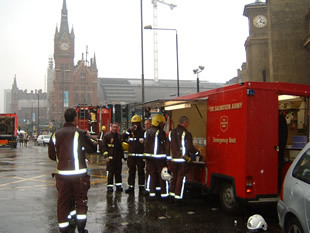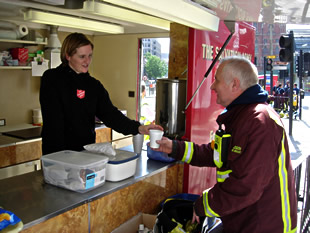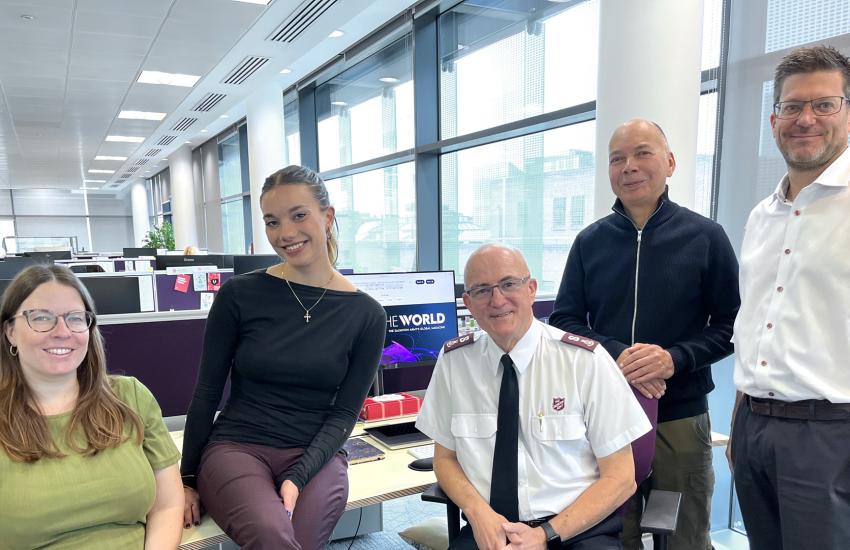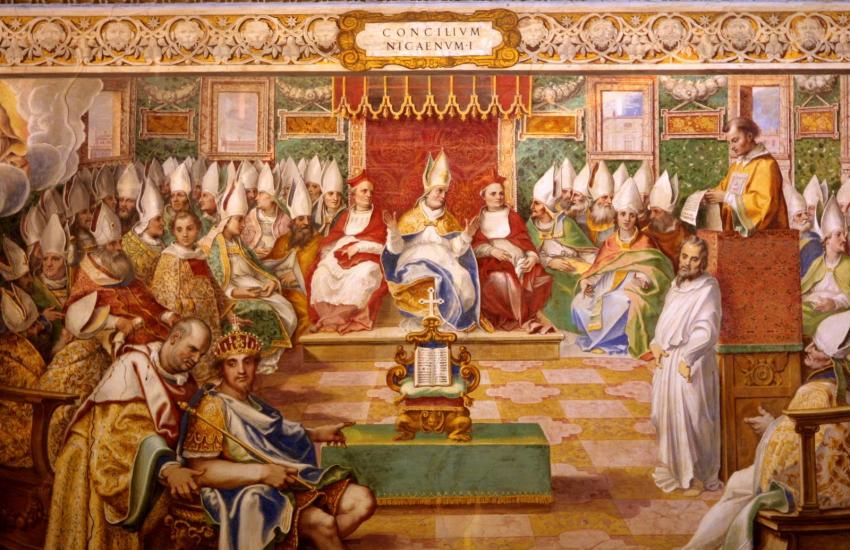
Emergency workers get refreshments from the Salvation Army canteen at King's Cross
Salvation Army personnel continue to provide support and counselling in the aftermath of the terrorist bombing on the transport network in London, England. More than 50 people were killed and hundreds injured after explosions on underground trains and a bus during the morning rush hour yesterday, Thursday 7 July.
Twenty-four hours after the bombings a Salvation Army emergency vehicle was still at Russell Square with staff and volunteers offering support, counselling and refreshments. Additional teams are on standby across London.
As the investigation and clear-up operation gets underway Salvation Army personnel are offering practical and emotional support to those involved. Some Salvation Army officers (ministers) have accompanied paramedics underground as they recover bodies while others have been on hand to talk to people as they take breaks.
'People who have been in the tunnel have witnessed some very grim, disturbing scenes,' says Salvation Army officer Major Anne Read who has been based at Russell Square. 'They have been grateful for the chance to talk in confidence about what they've seen.'
The Salvation Army is part of the emergency response plan in London. Teams were on hand at King's Cross and Russell Square yesterday, helping the emergency services, supporting survivors and offering assistance to stranded commuters on Oxford Street until late in the night.
'The Salvation Army is proud to have been involved in supporting the emergency services and the people of London during this tragic and traumatic experience,' says Lieut-Colonel Vic Poke, Chief Secretary of The Salvation Army's United Kingdom Territory. 'We will continue to do all we can to help the emergency services, survivors and the relatives of the bereaved during these difficult days.'
The Salvation Army's Faith House Social Services Centre, opposite London's King's Cross station, assisted the emergency services there, offering counselling and refreshments. After the first explosion centre manager Captain Estelle Blake was asked by rail company GNER to help serve tea and coffee at Faith House. She was also asked by the police to help the local Burger King restaurant provide hot food and cold drinks to emergency service workers and civilian workers within the cordoned-off emergency area.
Later, Faith House was used as a quiet area where travellers in a state of shock could sit down and talk through their experiences and call relatives and loved ones. Those helped included some pregnant women and travellers who had abandoned their belongings on the platforms at King's Cross. The Salvation Army centre also provided support to volunteers who helped to rescue survivors.
As people struggled to make their way home on Thursday evening The Salvation Army supplied clothing and food parcels to the public in central London. This included food donated by the caf� chain Pr�t a Manger for distribution in King's Cross. Salvation Army ministers also bolstered hospital chaplaincy teams across London to provide support and counselling to victims and their families.

Salvation Army volunteer Rachel Gash serves a fireman at King's Cross
The latest information on The Salvation Army's work in London is available on the UK Territory's web site:
http://www.salvationarmy.org.uk
Salvation Army teams in London continue to serve the public and emergency service workers
Discover more

The unfiltered me
In this ‘Unfiltered’ column, young Salvationists (Salvation Army church members) deliver raw, real and straight-from-the-heart perspectives from around the world. This month, Blessed Kachepa encourages Christians to live an unfiltered life, bringing

United in spirit, culture and mission
International leaders minister in home territory

The Salvation Army celebrates the launch of new online magazine
A redesigned and reimagined All the World is now live!

A brilliant idea
Major Peter McGuigan writes about All the World and introduces its team

The core of the Christian faith
After 1,700 years, the Nicene Creed is still relevant today

Five minutes with... Fernanda Rivera
From Mexico City to global platforms, Fernanda Rivera is a passionate advocate for youth inclusion and blends faith, activism and community to empower young voices. In this Q&A, she shares her daily work, spiritual journey and her hopes for the